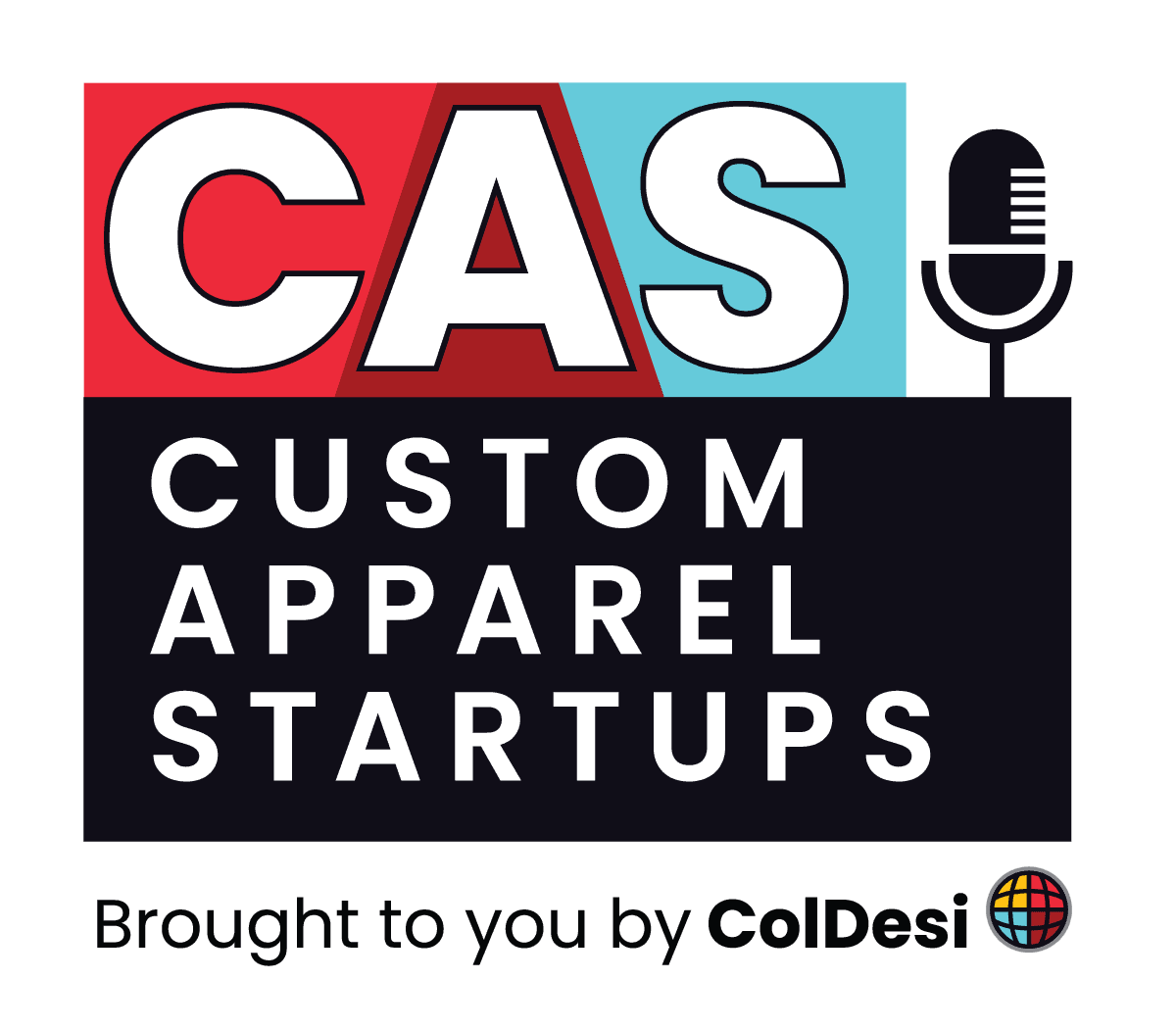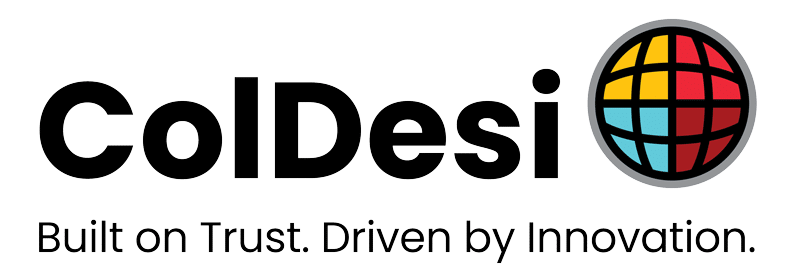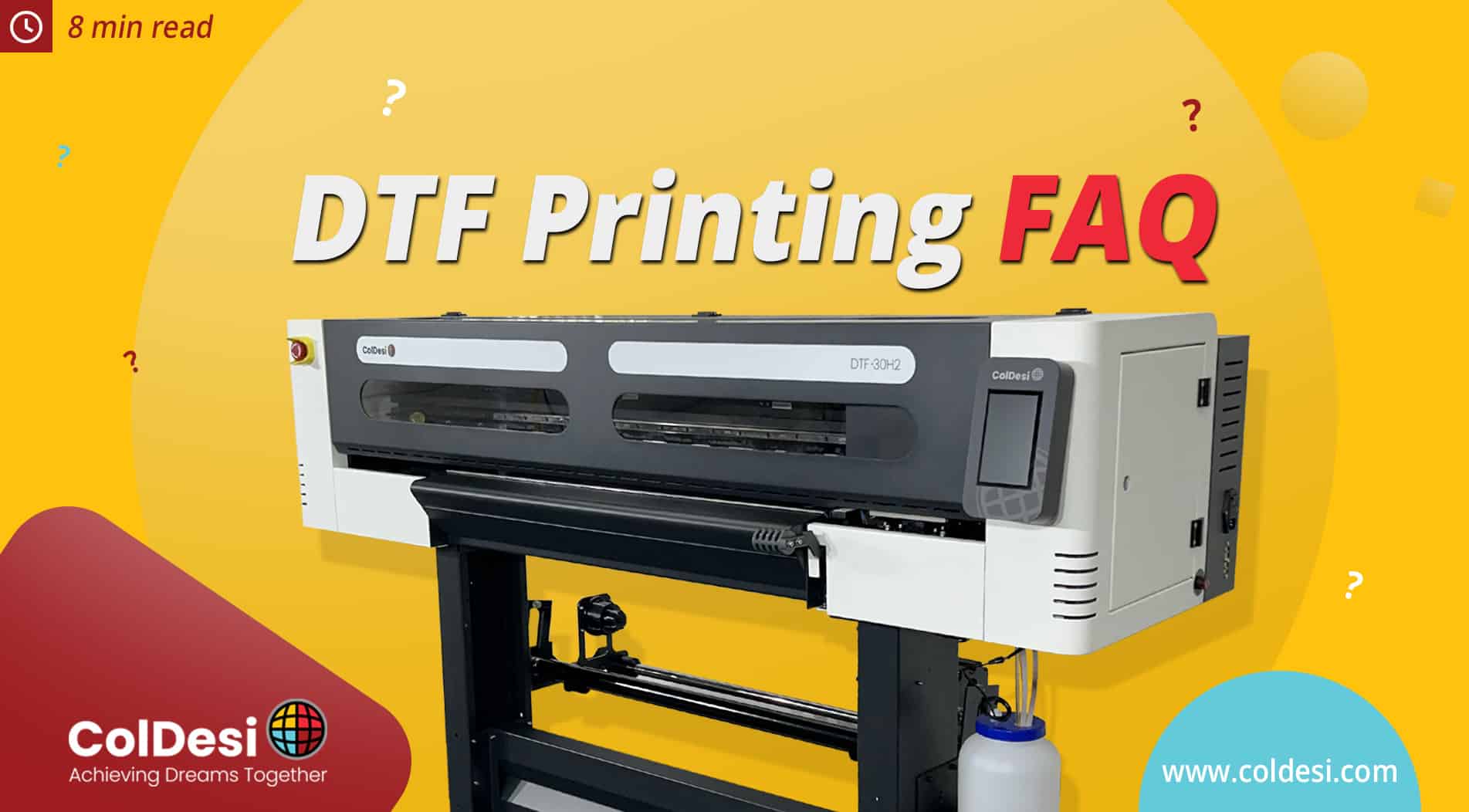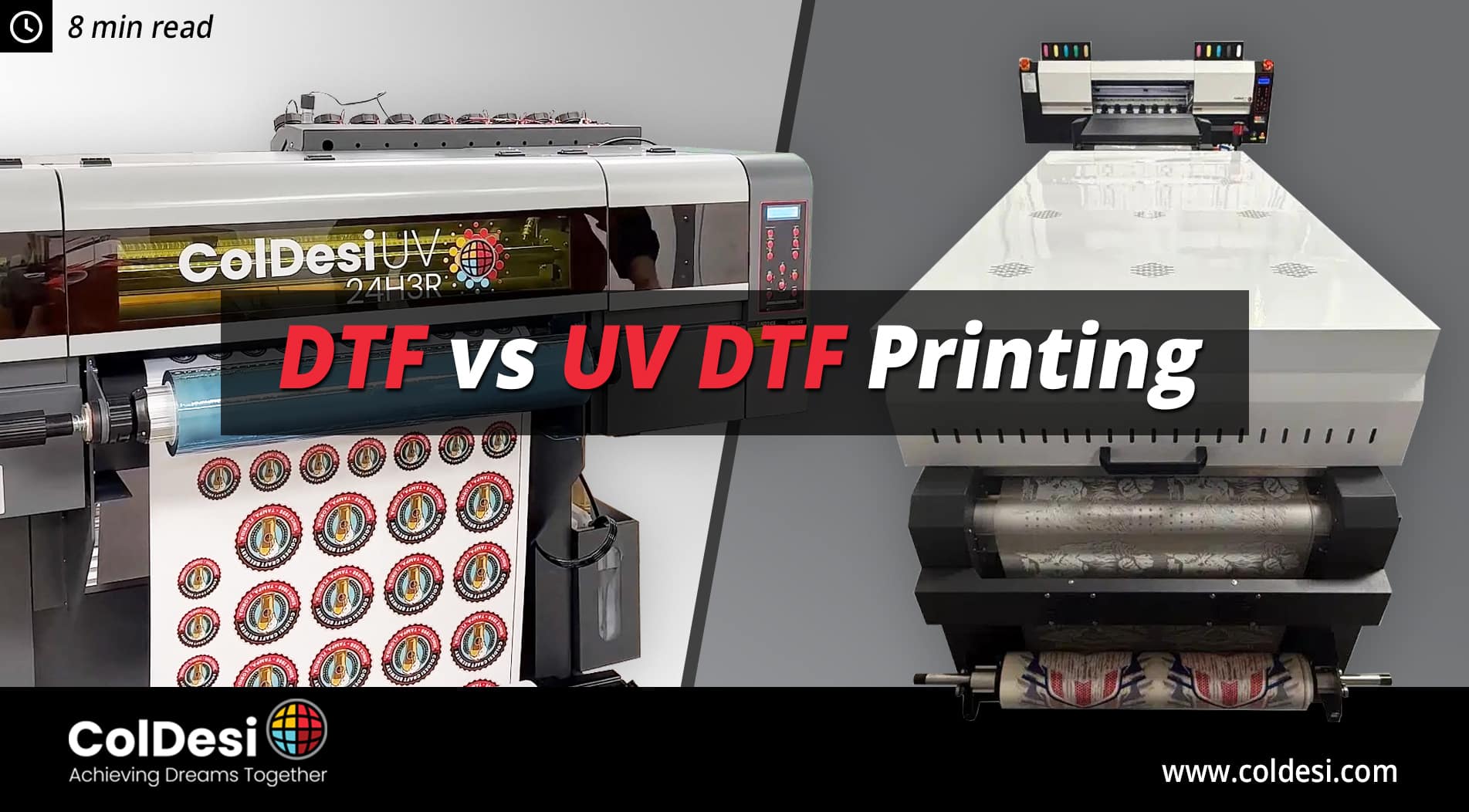
Episode 52 – Free Government Resources to Help You Start a Business
For this post we chatted with Bill Burnham from the Florida Small Business Development Center. We get the same basic questions in the Custom Apparel Startups Facebook Group that all small businesses, startups, or entrepreneurs ask. Things like: where do I get financing? Do I need a business plan? What does that look like? This is what encouraged us to reach out to Bill because we’ve taken advantage of the FSBDC’s services in the past. Small business organizations are important for helping their local community. Most of these organizations do this for the betterment of the community, and as such, their services don’t cost anything. So many people don’t take advantage of it. Bill, could you tell us who you are and what the FSBDC does?
The FSBDC is part of a nationwide organization of small business development centers whose charter is to help economic development through supporting small businesses. Helping them get started, helping them grow, helping them succeed so that they can in turn provide additional jobs in the community, which ultimately leads to economic growth for the community. At the FSBDC we can really help small business owners at any stage of their business. Whether they’re pre-venture all the way through to people who’ve started their business, and are thinking about buying a piece of property to expand, they want to get into government contracting, they want to take advantage of some of the certifications that are available. Even to the point of “I’ve been in business for many years and I’m thinking of an exit plan, I want to know what my business is worth, and start planning for that process.” We probably have something to offer every small business, wherever they happen to be in that spectrum.
You mentioned that this is the Florida branch and it’s attached to USF because you’re in the Tampa Bay area, how would people around the country find similar offices?
There’s a couple ways. One would be just to Google “Small Business Administration”, and you’ll find a link to the Small Business Development Office, with a locator that will tell you the nearest offices. Or just Google “Small Business Development Center” and whatever town or county you happen to be living in, and an office will pop up.
Let’s say in that pre-startup phase, what are some of the most common questions that you get?
Probably the most common questions are:
What we try to tell people when they first come in, is to spend some time doing feasibility analysis to make sure there is actually a market for what they want to do. A lot of times our ideas sound really good to us, but they’re not necessarily an idea that has a market that’s going to support what the ultimate income level is that the client would like to achieve.
- Is my idea a good one?
- Do you think there’s a market for this?
- How do I get started?
- Do I need a business license?
- Do I need to register with the state?
The first time we went to the SBDC was when we had decided to start our own business a while ago. We found a supplier, did our branding, etc. and ran through all that with the SBDC. They provided great advice on parts of the business plan. That’s how we know about the SBDC, but often it seems like the SBDC is a bit of a secret. We have thousands of members asking these questions to us, and we’re glad to be able to get the word out to them about what the SBDC does.
We say that a lot, that we’re the best kept secret in town. It’s amazing how many clients come in for the first time, and they never knew we were here or did all these things. We work very diligently to get the word out, but it’s a long slow process.
What’s often curious about the whole thing, is that we’ll advise someone that “that’s a great questions for your local SBA chapter” and they don’t know why they would go there. So we have to explain to them that there are so many resources that are free and there’s people waiting for them to come ask these exact questions. We can’t read the financial part of your business plan to give them an educated answer, but there are people at the SBA that can. A lot of people we talk to are starting their business and it’s going to be a home based business. Are you able to tell them, based on their county, whether they need a special licence for a screen printing business, or a t-shirt business that kind of thing?
Generally there’s not a special licence that’s required. The counties around the Tampa Bay area tend to differ a little bit and I know you guys work nationally with clients. Laws tend to vary from state to state, and county to county, even city to city. In one county for example you would have to get a business tax license, but in others it may not be required. If there’s any doubt, again you can Google or call us and we’ll help you do that research.
Whatever your local branch is, that branch will be able to tell what the local requirements are for licensing or sales tax IDs, etc.
Sales tax in Florida, the Florida Department of Revenue handles that. We always advise our clients to contact the Florida Department of Revenue, explain to them what it is they’re thinking about doing and then get a determination from them as to whether they’re going to need the sales tax certificate or not. If they do, it’s a relatively simple, online process to fill out the application. If the clients have any problems with that, they can come into our office and we’ll want them through it right then.
One of the typical questions from our customers is “What does that whole thing cost? I want to make a business name, tax license, state sales tax license. What does that initial paperwork cost?”
If it’s a sole proprietorship, which in the state of Florida is the simplest and lowest cost approach, you would want to register a fictitious name with the state. That process can be done online. Florida has a website called Sunbiz.org which is run by the Secretary of State and the State of Florida. Every state has similar types of systems set up, generally tied to the Secretary of State in that particular state. You would register a fictitious name, it costs $50. In the state of Florida that fictitious name registration is good for 5 years, so it will have to be renewed, and the state will send you a friendly reminder. As far as the the sales/business tax license, if you need that, it could vary a little bit, but generally the average is about $150 to get started, and that’s something that has to be renewed every year. Beyond that, you’re going to have a website, so you’ll have to register for a domain name, which is relatively inexpensive these days. In terms of web hosting, that can run you a little more. If you have the capability to do that yourself a lot of the hosting sites – GoDaddy, Wixx – make it fairly easy to do. For $100-$150 you can get a basic website set up. Sales tax doesn’t cost anything. Getting an Employer Identification number for the IRS doesn’t cost anything. If you decided you needed a limited liability company, as opposed to a basic fictitious name registration, the cost would be a little bit more in the state of Florida, around $150. Again that’s something you can do on Sunbiz.org and you can do yourself. With that there is also an annual report that has to be filed with the state which costs $150 per year. You’re more of a structured entity, with the idea that it’s going to be more than just you in the business.
We asked that question specifically so that people could get an idea of not only the cost involved but also that you’re the people to go to to get that information – wherever they are locally. It’s going to be a lot different in Texas, New Jersey, etc. For the most part to set this up correctly the first time, isn’t going to cost you more than a few hundred dollars. That’s if you’re doing all of it. If you’re doing the basic, you can almost start for about $100. Then if you’re going a little bit further, getting a domain, and into the LLC, you’re at a few hundred dollars. All of that may be mildly intimidating – what do you need? So part of the point of this blog post is to simply encourage you to go to a SBA office, to have them help you make a decision or point you in the right direction. You’re going to want to focus on your embroidery business or your t-shirt printing business because it’s fun. You didn’t get into business to do the paperwork, but you’ve got to do it, so go somewhere where they can help you. If you’re already in business you can go to them and they can help you to make sure you’re doing things in the right direction, or perhaps you want to make a change. Too many people do nothing. They’re already in business and they want to do something different, then they’re backtracking and they don’t know where to go. Or that they haven’t paid their sales tax in 7 months. You’ve got a free resource to help you start your business. They’ll walk you through the paperwork.
That’s correct. I have a lot of clients who have already done some of this and unfortunately as we talk through their situation, it becomes apparent very quickly that they maybe didn’t choose the right entity type given the complexity of their business. I always tell people to come see us first, we’ll walk you through what the considerations are prior to making an entity type selection. All of the stuff we talked about up until now are things they can do themselves, with a little help perhaps. It’s not necessary to pay someone to help you with these particular things. There’s a whole industry out there – individuals and companies – who sort of prey on new entrepreneurs who don’t know any better. I’ll have clients who come in who’ve already set up their entity on Sunbiz and they’ve paid someone $250 to help them set it up. They didn’t need to do that. We could have walked them through it and it wouldn’t have cost them anything. Unfortunately it’s an expensive lesson learned that hopefully they don’t repeat.
After the “how do I actually start a business?” the two most common questions we get are: “Do I need a business plan? And what should that look like?” and then “What are the resources available for me to finance my equipment?”
Let’s talk about the business plan first. There are situations where a business plan may not be necessary, or a “have to have it” type of terms. However, we recommend that it’s always a good idea to go through that process, even if you’re not going to need it for financing or a bank is going to require it. The reason we say it’s a good idea is because it takes you through the feasibility process of determining is this business feasible – is there a target market? what does my target market look like? is it big enough? what makes them buy? do I understand the industry? do know what the competition looks like? is there a lot of competition or no competition? what are the strengths and weaknesses of the competition? What does that financially look like? What are the startup costs? What are the fixed expenses? Salaries? What does my sales forecast look like? How many do I need to sell? I always ask clients when they come in: What’s your goal? How much money do you want to make? How much money do you need to make out of this business to replace what it is you’re doing right now? Once we know that number, let’s work and see, will this business idea support that. A business plan helps with all these things. It helps you focus your ideas, organize your thoughts, and ultimately provides a feasibility study to determine whether this particular idea is a good one for that individual.
If a customer is looking to start a custom monogramming business, they might not necessarily need at all a formal business plan, though it’s could still be a good idea to go through the exercise and determine who they’re going to sell to, what they market looks like, and how much money they are going to make. Simply write some of these things down. It might not be a formal business plan, but it answers the basic questions for yourself and gives you a space to write down some goals. However if your goal is to have 20 machines and buy all those upfront, you better have a business plan if you’re investing all of that money. We’ve used business plan builder software a couple of times. What we found is that doing this is a great way to vet ideas. You go through and you do the research. When filling in the information about the competition you’re forced to take notes – is CafePress really my competition? Do I care if the screenprinter down the street sells shirts for $8? Maybe you do and maybe you don’t. It can help you determine your pricing structure/strategy. Bill, do you offer any templates for people to build a business plan with?
Absolutely. We have a lot of resources available. We have templates, we have check-lists that they can use. Essentially as they go down and answer the questions on the check-list they’ll have what they need to then write a business plan. We also offer training classes on various topics, one of those is a business planning class, where they can learn in a little bit more detail how to prepare a formal business plan. As well as the thought process and research that needs to go into a business plan. Any of the resources are available on our website. Any of the SBDC’s in the country will have similar resources available on their webpages.
When do actually have to have a formal business plan?
Certainly if you’re going to try to seek funding through an SBA guaranteed loan, that is still a requirement. A lot of the banks we’ve talked to recently are softening on the requirement to have a formal business plan. What they’re requiring instead is something similar to what you would think of as the ‘executive summary’ that appears in a business plan. It might be 2-3 pages that summarizes what the business is, who the principles are what the financial results that are expected, and what the need is, and how the money is going to be used. A lot of the banks, if it’s going to be an internally financed loan, then they don’t necessarily require that formal business plan. In terms of financing in general, if the business is a startup, which is probably most of what we’re talking about here, the traditional financing is a little more difficult to get for startups, than it would be for a business that has been functioning for 5 years – it has 5 years worth of history, 5 years worth of tax returns, positive results. Banks are more likely to lend to those types of companies because of the risk factor. Banks realize there is a higher rate of failure for startups so they tend to be risk-averse. Having said that, the things the banks are going to look at generally, are how much do you need? and what do you plan to use it for? They want to see that you have collateral which supports the loan. It could be both business and personal assets. That business equipment they need to start their business can be part of the collateral that supports the loan. In a lot of cases there are not a lot of business assets to support the financing need, so the banks will ask you about personal assets you have. They will ask if you’re willing to put up your house as collateral – you don’t have to do that, they can’t force you, but they will ask. They’ll look at the business cash flow. What do your projections look like to show positive cash flow. That’s a must. I’ve had clients who come in whose business plan has a negative cash flow for the first year, and I’ve told them, not to take it to the bank until we can figure this out, because the bank does not like negative cash flow. It shows that you can pay back the loan and still have some reserves. The last thing they’ll look at is character. Character encompasses a lot of things. Part of that is the credit score, credit history. Many folks come in the first time and they are under the impression that it’s the business because it’s a business loan, when in reality the bank is looking at you personally because it’s a startup – they’re loaning the money to you. They want to know that you have a good credit history and have some sort of capabilities, some sort of industry knowledge or management knowledge so that you personally would be a good risk. If you’re opening a t-shirt business and you’ve run businesses before either as an owner or as a manager, then that’s certainly going to be helpful. Or if you have industry experience where you worked for a t-shirt manufacturer.
A fear for people, that is potentially preventing them from coming to see your type of organization, is the fear of asking stupid questions.
I’m the one who always says the cliche, there is really is no such thing as a stupid question. The only stupid question is the one that doesn’t get asked. If you don’t ask the question, how are you going to get the answer.
People are so afraid of asking a basic question, because they fear they’re going to look like a fool. Going to you and wasting your time with such a stupid question. It’s likely a question you’ve been asked 500 times by others. Everyone understands that perhaps you’re a stay-at-home mom that’s been doing embroidery from your house for friends and family for 5 years, that you’ve never run a business before or financed a business or had to do government paperwork. You can ask those questions and not worry about anyone judging you for what you know and don’t know. It’s perfectly normal that you don’t know some of these things.
What I generally tell people is that’s what we’re here for. That’s what we get paid to do – to help you through this process, whatever that means, whatever that takes.
We’ve talked about startups, but we’ve also got this whole other set of people, who perhaps they’ve been doing custom bling t-shirts or they’re mid-sized shops and they’re bringing in enough money to support themselves and they’re ready to take the next steps to either going retail and getting a new shop, or adding serious equipment – they started out with a $5,000 machine, invested some serious money, and are now ready to go to the $50-75,000 machine. And grow into a bigger company. Is there a separate set of resources that you offer for people who are already in the business?
It’s certainly going to be a different conversation, because they’ve obviously gone through all the initial start-up activities. But there is some crossover. The whole financing question has to be answered. Part of the business planning process may be invoked. We’ll try to help them determine the best alternatives for what they want to do in terms of equipment selection or location selection. Let’s say they’re looking for a retail set up, we would try to help them understand what they need to be looking at in terms of evaluating those locations. Both in terms of the market support and the financial aspect – what it’s going to cost. When it comes to financing we can go even so far as to work with them as they work with the banks, and perhaps intercede on their behalf at certain points to get issues resolved. A lot of times what I’ll do when someone comes in in that situation is ask them if it’s okay, because everything we talk about with the clients is confidential, so we don’t share their information with anyone outside of the SBDC without their permission. So I might ask the client “Would you mind if I talk to a couple of our banking resources to go through your situation with them and see if this is something they think is feasible?”
This is all funded from the state or federal level?
Our funding comes from several different sources. We do get some funding from the Small Business Administration. We also get some funding from the state of Florida. We get some funding from USF, because they are our local partner. And then we also raise some of our own funds through private resources. In order to get the level of funding we need to get the resources that we provide, we do have to generate some of our own funding as well.
For us, the big takeaway from this is that whether you’ve been in business for years, or you haven’t even started yet, you should check out what your local organization has to offer you. Whether it’s a brief consulting meeting on some questions, or you take a class, or advantage of some sort of partnership they have with organizations – such as universities – and go and learn something new. You’re going to learn something new and do something better for your business.
You can go to sbdctampabay.com. There’s all types of resources there, if they’d like to come in for a consultation session they can register on the website. They can call us at 813-905-5800. If they’re not in our region they can Google SBDC and their state/city and the local resource will come up for them.
Have a good business!
- Join us on Facebook: Custom Apparel Startups
- Listen to more postcasts: caspodcast.com
- Watch some sales and business webinars: caswebinars.com
- Learn more about Rhinestone Machines, Embroidery machines, Direct to Garment Printing and more at coldesi.com




